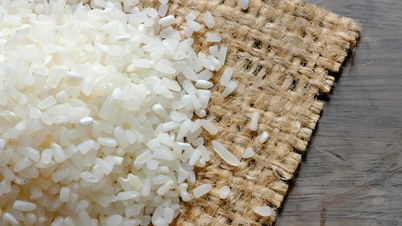So how do belly fat and cholesterol relate to blood vessel and brain health? Let's take a closer look.
Many people often think that belly fat only causes a loss of confidence in communication, but in fact this is the most dangerous type of fat, called visceral fat. Unlike subcutaneous fat, visceral fat surrounds the liver, pancreas, intestines and other organs, and has the ability to secrete many substances that cause inflammation and metabolic disorders.
Research shows that people with large waist circumference (men ≥ 90 cm, women ≥ 80 cm) often have a high risk of diseases:
- Hypertension
- Type 2 diabetes
- Dyslipidemia (hypercholesterolemia, hypertriglyceridemia)
- Atherosclerosis
These factors are the "bridge" leading to stroke and heart attack.
Cholesterol – the silent enemy of blood vessels
Cholesterol is a fat that is essential for the body, participating in the structure of cell membranes and hormone production. However, when the concentration of “bad” cholesterol (LDL-C) is too high and “good” cholesterol (HDL-C) is too low, blood vessels will be damaged.
Excess LDL-C easily adheres to blood vessel walls, forming atherosclerotic plaques, narrowing or blocking blood vessels in the brain and heart. This is the direct cause of many cases of ischemic stroke or myocardial infarction.
People with belly fat often have metabolic syndrome, in which dyslipidemia is a prominent manifestation. That is, belly fat and high cholesterol often go together, simultaneously pushing the risk of stroke to alarming levels.
Why does belly fat increase cholesterol and stroke risk?
Belly fat, especially visceral fat, acts as a “dysfunctional endocrine gland.” It releases inflammatory cytokines, which increase the liver’s production of bad cholesterol and triglycerides, while decreasing good cholesterol.
The consequences are:
- Plaques form faster.
- Blood vessels become stiff and less elastic.
- Increased risk of blood clots.
When blood clots travel to the brain, they can block cerebral arteries, causing an ischemic stroke – which accounts for more than 80% of strokes today.
Warning signs to watch out for
People with abdominal obesity and cholesterol disorders often have no obvious symptoms until the disease progresses severely. However, they may experience:
- Big waist even though weight is not too high.
- Fatigue, easy to gain weight in the abdomen.
- Chest pain, shortness of breath on exertion.
Blood test results show elevated total cholesterol, LDL-C, or triglycerides.
If you have the above signs, you should have an early health check for timely detection and intervention.
How to reduce the risk?
To prevent stroke due to abdominal obesity and high cholesterol, it is necessary to adopt a scientific lifestyle and monitor health regularly:
- Weight and waist control
- Eat lots of green vegetables, fruits, whole grains.
- Limit animal fat, fried foods, fast food.
- Drink enough water, avoid alcohol and carbonated soft drinks.
- Increase physical activity
- Walk briskly, swim, or cycle at least 150 minutes a week.
- Combine abdominal exercises to reduce visceral fat.
Manage stress and get enough sleep
Prolonged stress disrupts hormones and easily causes belly fat to accumulate.
Sleeping less than 6 hours/day also increases the risk of abdominal obesity and dyslipidemia.
Regular health check-up
Blood lipid test every 6-12 months.
Stroke risk screening by brain MRI and vascular ultrasound.
Early treatment with medication if cholesterol is high or plaque is present.
Conclude
Belly fat is not only an aesthetic problem, but also a “red signal” warning of serious health risks, especially blood cholesterol disorders and stroke. The combination of these two factors creates a “time bomb” for blood vessels and the brain.
Therefore, each person needs to proactively build a healthy lifestyle, maintain a reasonable weight, and have regular health screenings to protect the heart and brain. Preventing belly fat and controlling cholesterol are the keys to reducing the risk of stroke and living a long, healthy life.
Source: https://skr.vn/belly-fat-and-cholesterol-anh-huong-den-dot-quy-the-nao/






![[Photo] Hanoi is ready to serve the occasion of the 80th National Day Celebration on September 2nd](https://vphoto.vietnam.vn/thumb/1200x675/vietnam/resource/IMAGE/2025/8/29/c838ac82931a4ab9ba58119b5e2c5ffe)






















![[Photo] Prime Minister Pham Minh Chinh meets with Speaker of the New Zealand Parliament Gerry Brownlee](https://vphoto.vietnam.vn/thumb/1200x675/vietnam/resource/IMAGE/2025/8/28/cec2630220ec49efbb04030e664995db)


























































Comment (0)